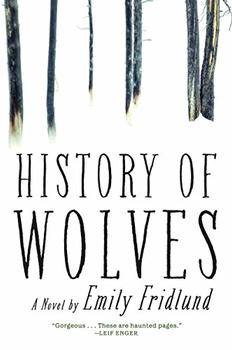Summary | Excerpt | Reading Guide | Discuss | Reviews | Beyond the Book | Read-Alikes | Genres & Themes | Author Bio

This article relates to History of Wolves
Christian Science was founded in 1894 by Mary Baker Eddy as a means of embracing "primitive Christianity and its lost element of healing." The foundational text is Eddy's Science and Health with Key to the Scriptures, published in 1875, which Emily Fridlund references several times in History of Wolves.
 Mary Baker Eddy (1821-1910) grew up in a family of devout Puritans, and her early life was beset by hardship. She was frequently ill as a child, and as a young woman she lost both her brother and husband in a short span. Beginning in 1862, Eddy was in correspondence with Phineas P. Quimby, proponent of an early form of homeopathy. She combined Quimby's beliefs with her own religious convictions to create Science and Health and launch the Church of Christ, Scientist. Eddy spread her message via lectures at Massachusetts Metaphysical College and sermons at Christian Science churches, successfully attracting many dissatisfied Protestants to the faith. Though in her own lifetime Eddy was viewed as a controversial figure, and her teachings denounced by many, contention against the Church hit a peak in the 1980s-90s due to a spate of legal issues.
Mary Baker Eddy (1821-1910) grew up in a family of devout Puritans, and her early life was beset by hardship. She was frequently ill as a child, and as a young woman she lost both her brother and husband in a short span. Beginning in 1862, Eddy was in correspondence with Phineas P. Quimby, proponent of an early form of homeopathy. She combined Quimby's beliefs with her own religious convictions to create Science and Health and launch the Church of Christ, Scientist. Eddy spread her message via lectures at Massachusetts Metaphysical College and sermons at Christian Science churches, successfully attracting many dissatisfied Protestants to the faith. Though in her own lifetime Eddy was viewed as a controversial figure, and her teachings denounced by many, contention against the Church hit a peak in the 1980s-90s due to a spate of legal issues.
There are about 1,100 Christian Science churches currently operating in the United States. Adherents believe in a literal interpretation of Jesus' New Testament assertion that "Whoever believes in me will do the works I have been doing," i.e, performing miracles, though they eschew terms like "miracle" and "faith healing" and claim their beliefs are based in science. This "science" contends that people, having been made in God's image, are entirely spiritual beings, and anything physical, injuries, illness, etc., is a state of mind and not "real." As such, all that is required to be free of one's ailments is to think or pray oneself well again. According to the Church, these methods have been used to cure everything from cancer, to diabetes, to broken bones. Though they insist that members are not forbidden from seeking traditional medical care, in Science and Health Eddy claims that visiting a doctor is "inviting defeat."
Picture of administrative building of Christian Science church by Maksim
Filed under Places, Cultures & Identities
![]() This "beyond the book article" relates to History of Wolves. It originally ran in January 2017 and has been updated for the
November 2017 paperback edition.
Go to magazine.
This "beyond the book article" relates to History of Wolves. It originally ran in January 2017 and has been updated for the
November 2017 paperback edition.
Go to magazine.
Courage - a perfect sensibility of the measure of danger, and a mental willingness to endure it.
Click Here to find out who said this, as well as discovering other famous literary quotes!
Your guide toexceptional books
BookBrowse seeks out and recommends the best in contemporary fiction and nonfiction—books that not only engage and entertain but also deepen our understanding of ourselves and the world around us.